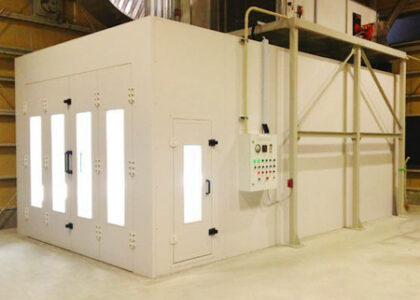The global ballistic protection material market value reached USD 15,247.8 million in 2023. Over the forecast period, the value is anticipated to rise at 6.1% CAGR. The industry is predicted to surge from USD 16,070.3 million in 2024 to USD 28,965 million in 2034. It is further projected to exhibit a Y-O-Y growth of 5.4% in 2024.
Demand remains exceptionally high for aramid fibers like Kevlar, owing to their excellent properties, including lightweight and high strength. The target segment is anticipated to register a CAGR of 7.9% during the forecast period.
The market for ballistic protection materials is predicted to expand around 2.0X through 2033. This growth is attributed to increasing cross-border tensions and conflicts in numerous countries.
The expanding defense budgets globally serve as a driving force for the ballistic protection material market. Similarly, increasing the allocation of funds toward enhancing military capabilities propels the demand for advanced armor solutions.
Global civilian safety equipment demand is rising due to growing concerns about threats from terrorists and criminals. This, in turn, is expected to drive the growth of the ballistic protection material market.
Civilians are increasingly proactive in protecting themselves, leading to expansion in the market for body armor, helmets, and vehicle armor. This trend signifies a global societal shift towards prioritizing personal safety and security.
The growing need for ballistic protection in the defense sector offers substantial opportunities for market expansion. This is propelled by a surge in defense spending and increasing national conflicts.
A variety of ballistic protection equipment, such as shields, gloves, helmets, protective vests, shoes, and jackets, are employed to enhance defense operations against chemical explosions. Rising products and usage of this equipment are set to uplift demand for ballistic protection materials.
Key Takeaways from the Report
- The global market for ballistic protection materials is projected to thrive at a 7.4% CAGR through 2033.
- By material type, the aramid fibers segment is expected to total USD 14,004.1 million by 2033.
- North America is expected to account for a significant market share of about 37.7% in 2033.
- The United States industry value is anticipated to reach USD 11,289.8 million by 2033.
- China is projected to attain a valuation of USD 4,880.5 million by 2033.
- Demand in India is predicted to rise at 9.3% CAGR through 2033.
“The ballistic protection material industry is poised to rise robustly amid growing geopolitical tensions and the evolving threat of terrorism. Military modernization programs and the imperative for law enforcement agencies to enhance officer safety will also contribute to the increasing demand for ballistic protection materials,” says Nikhil Kaitwade (Associate Vice President at Future Market Insights, Inc.).
Competitive Landscape
Following are the leading manufacturers of ballistic protection materials profiled in the full version of the report.
- Honeywell International Inc.
- DuPont
- TEIJIN Ltd.
- Rheinmetall AG
- TenCate Protective Fabrics
- Kolon Industries Inc.
- BAE Systems
- Rochling Group
- Morgan Advanced Materials Plc.
- Beijing Tongyizhong New Material Technology Corporation
- Dexcraft
- FY-Composites Oy
- Final Advanced Materials
- ArmorSource LLC
Key players are focusing on developing innovative materials with enhanced features like lightweight and high strength to boost their sales. They also adopt strategies like facility expansions, mergers, collaborations, partnerships, and acquisitions to expand their presence and stay ahead of the competition.
Recent Development-
- In October 2023, Dyneema unveiled its next-generation unidirectional (UD) material innovation to enhance the safety and mobility of military forces and law enforcement officers.
More Insights into the Ballistic Protection Material Report
In its latest report, Future Market Insights (FMI) offers an unbiased analysis of the global ballistic protection material market, providing historical data from 2018 to 2022 and forecast statistics for the period 2023 to 2033. To understand the global market potential, growth, and scope, the report is segmented based on material type, armor type, application, end-use, and region.
Ballistic Protection Material Market Segmentation
By Material Type:
- Aramid Fibers
- Polyethylene (PE)
- Composite Ceramics
- Glass Fiber Reinforced Plastics (GFRP)
- Steel and Titanium Alloys
- Others
By Armor Type:
- Soft
- Hard
By Application:
- Body Armor
- Vehicle Armor
- Aircraft Armor
- Marine Armor
- Helmets and Face Protection
- Others
By End-use:
- Military and Defense
- Law Enforcement
- Civilians
By Region:
- North America
- Latin America
- Western Europe
- Eastern Europe
- East Asia
- South Asia & Pacific
- Middle East & Africa
About Future Market Insights (FMI)
Future Market Insights, Inc. (ESOMAR certified, recipient of the Stevie Award, and a member of the Greater New York Chamber of Commerce) offers profound insights into the driving factors that are boosting demand in the market. FMI stands as the leading global provider of market intelligence, advisory services, consulting, and events for the Packaging, Food and Beverage, Consumer Technology, Healthcare, Industrial, and Chemicals markets. With a vast team of over 400 analysts worldwide, FMI provides global, regional, and local expertise on diverse domains and industry trends across more than 110 countries.
Contact Us:
Future Market Insights Inc.
Christiana Corporate, 200 Continental Drive,
Suite 401, Newark, Delaware – 19713, USA
T: +1-845-579-5705
For Sales Enquiries: sales@futuremarketinsights.com
Website: https://www.futuremarketinsights.com
LinkedIn| Twitter| Blogs | YouTube


